Implementation Science Center for Cancer Control Equity
The Implementation Science Center for Cancer Control Equity (ISCCCE) is one of seven such centers funded by the National Cancer Institute Moonshot Initiative. ISCCCE aims to develop sustainable strategies for ensuring that all patients have access to evidence-based cancer prevention and control.
Research Summaries
A research plain language summary is a short, easy-to-understand description of a scientific study. It helps make research findings clear to the community partners, clinical leaders and staff, and community residents. ISCCCE has created several of these summaries from our published research to help more people understand and engage with our work. By offering these summaries, ISCCCE aims to better share our research with the public so that valuable insights reach more people.
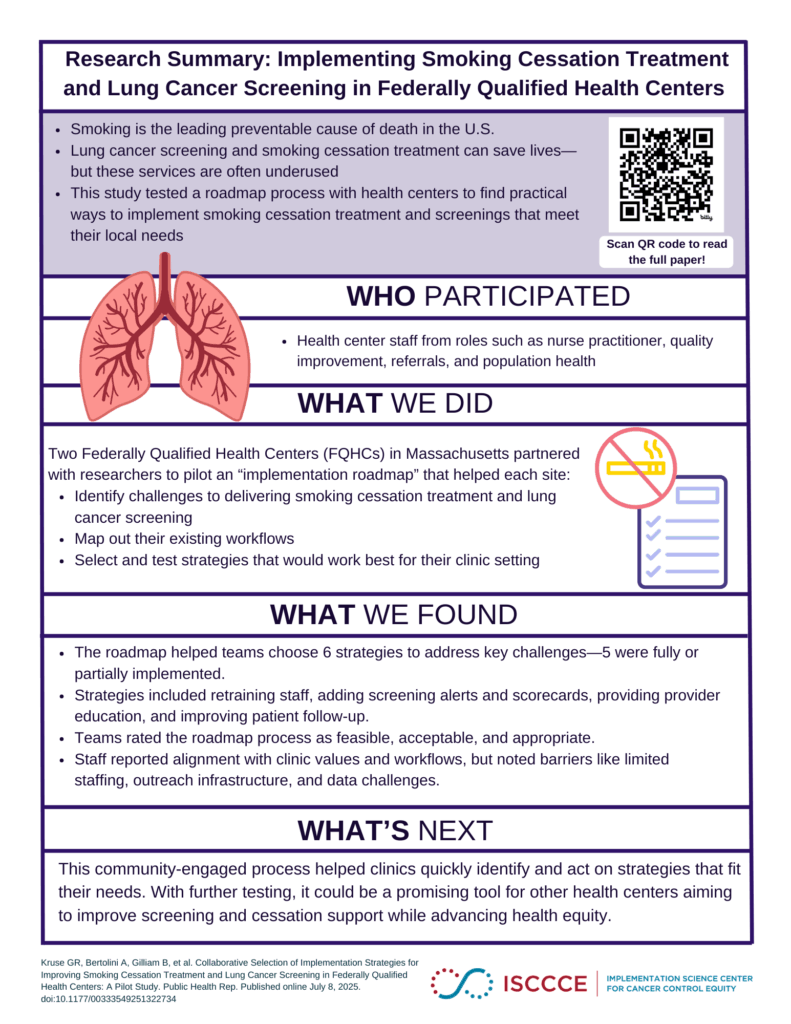
Collaborative Selection of Implementation Strategies for Improving Smoking Cessation Treatment and Lung Cancer Screening in Federally Qualified Health Centers: A Pilot Study
Smoking is the leading preventable cause of death in the U.S. Lung cancer screening and smoking cessation treatment can save lives — but these services are often underused. This study tested a roadmap process with health centers to find practical ways to implement smoking cessation treatment and screenings that meet their local needs.
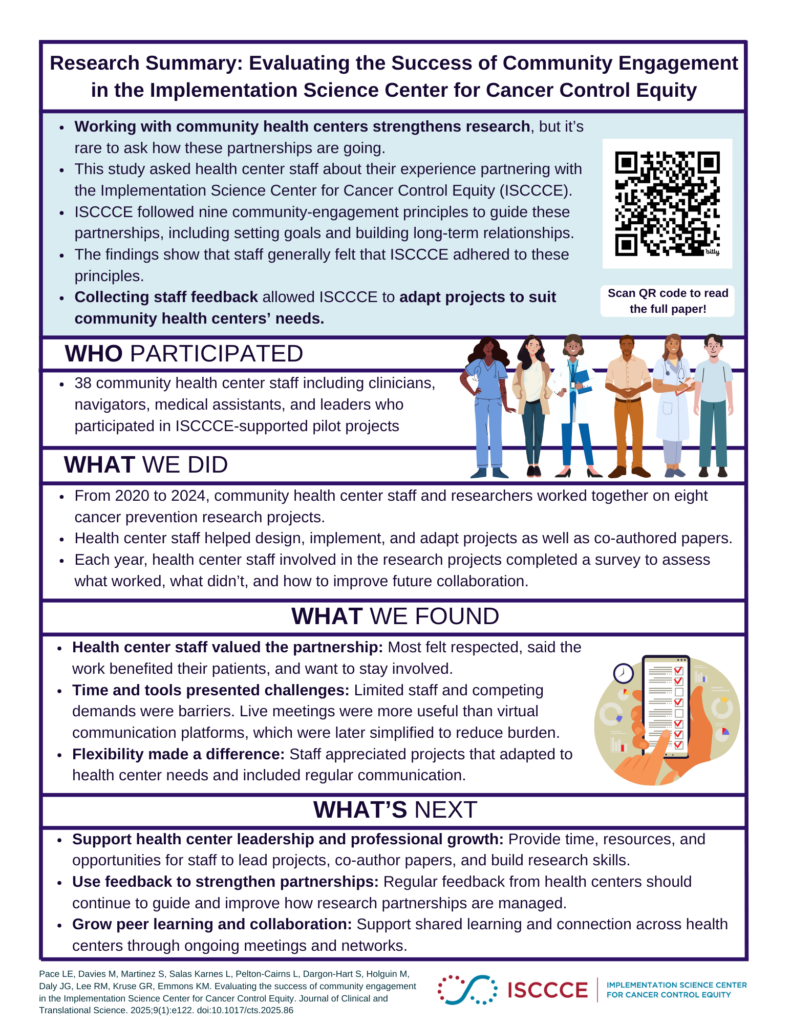
Evaluating the Success of Community Engagement in the Implementation Science Center for Cancer Control Equity
Working with community health centers strengthens research, but it’s rare to ask how these partnerships are going. This study asked health center staff about their experience partnering with the Implementation Science Center for Cancer Control Equity (ISCCCE). ISCCCE followed nine community-engagement principles to guide these partnerships, including setting goals and building long-term relationships.
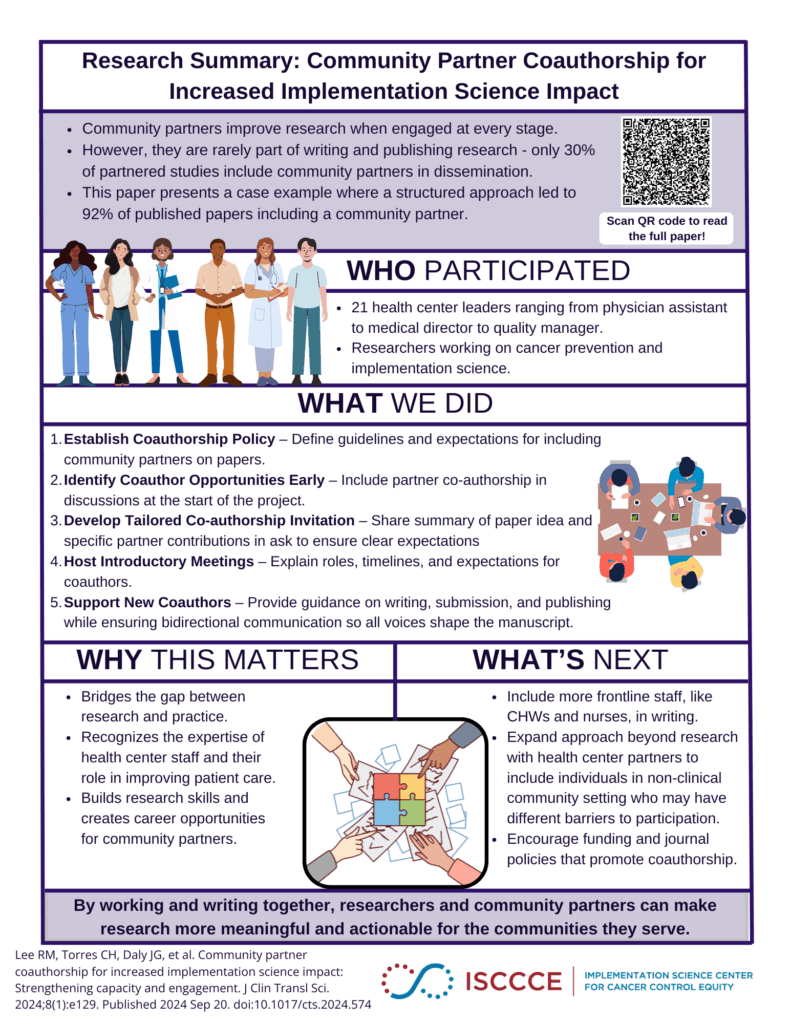
Community Partner Coauthorship for Increased Implementation Science Impact
Community partners improve research when engaged at every stage. However, they are rarely part of writing and publishing research – only 30% of partnered studies include community partners in dissemination. This paper presents a case example where a structured approach led to 92% of published papers including a community partner.
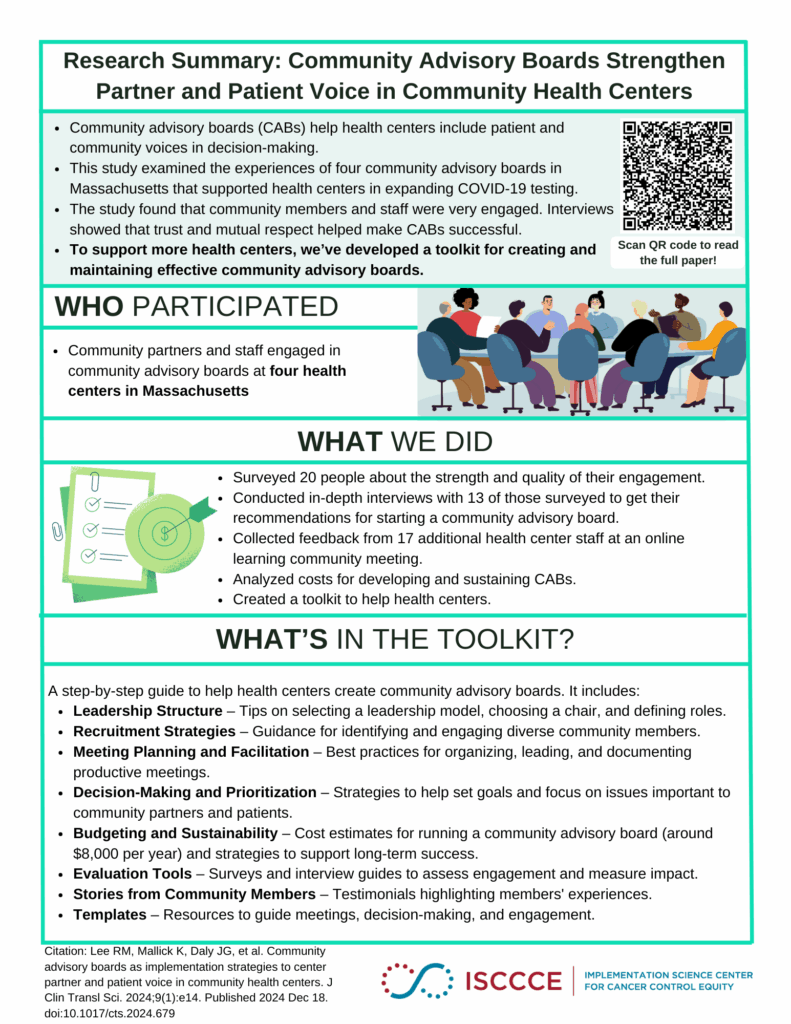
Community Advisory Boards Strengthen Partner and Patient Voice in Community Health Centers
Community advisory boards (CABs) help health centers include patient and community voices in decision-making. This study examined the experiences of four community advisory boards in Massachusetts that supported health centers in expanding COVID-19 testing. The study found that community members and staff were very engaged. Interviews showed that trust and mutual respect helped make CABs successful. To support more health centers, we’ve developed a toolkit for creating and maintaining effective community advisory boards.
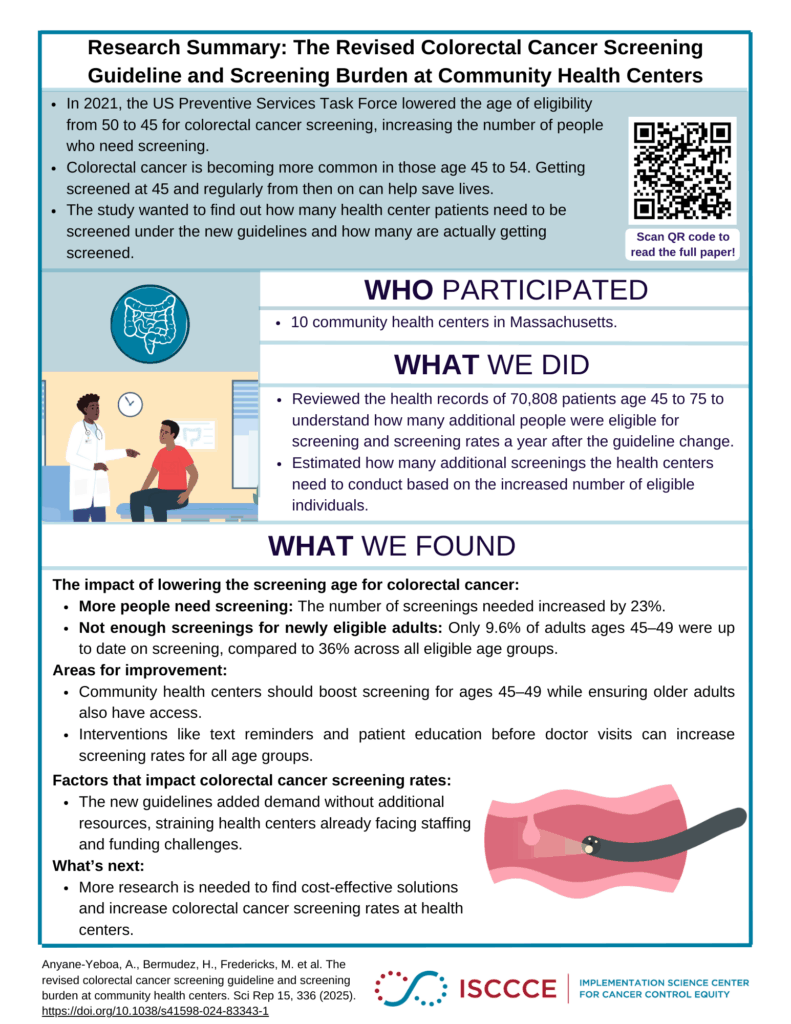
The Revised Colorectal Cancer Screening Guideline and Screening Burden at Community Health Centers
In 2021, the US Preventive Services Task Force lowered the age of eligibility from 50 to 45 for colorectal cancer screening, increasing the number of people who need screening. Colorectal cancer is becoming more common in those age 45 to 54. Getting screened at 45 and regularly from then on can help save lives. The study wanted to find out how many health center patients need to be screened under the new guidelines and how many are actually getting screened.
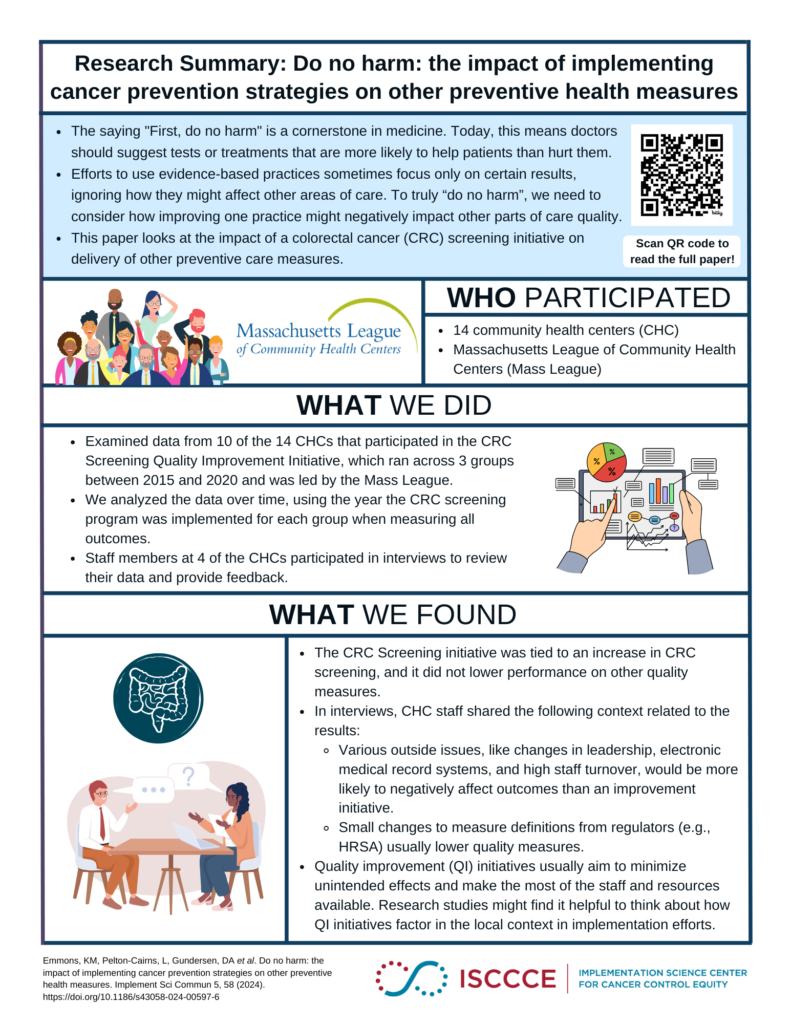
Do no harm: the impact of implementing cancer prevention strategies on other preventive health measures
Efforts to use evidence-based practices sometimes focus only on certain results, ignoring how they might affect other areas of care. To truly “do no harm”, we need to consider how improving one practice might negatively impact other parts of care quality. This paper looks at the impact of a colorectal cancer (CRC) screening initiative on delivery of other preventive care measures.

Implementation of evidence-based primary cancer prevention interventions in Massachusetts community health centers
This study wanted to find out how health centers in Massachusetts are using cancer prevention EBIs on site and with community partners.
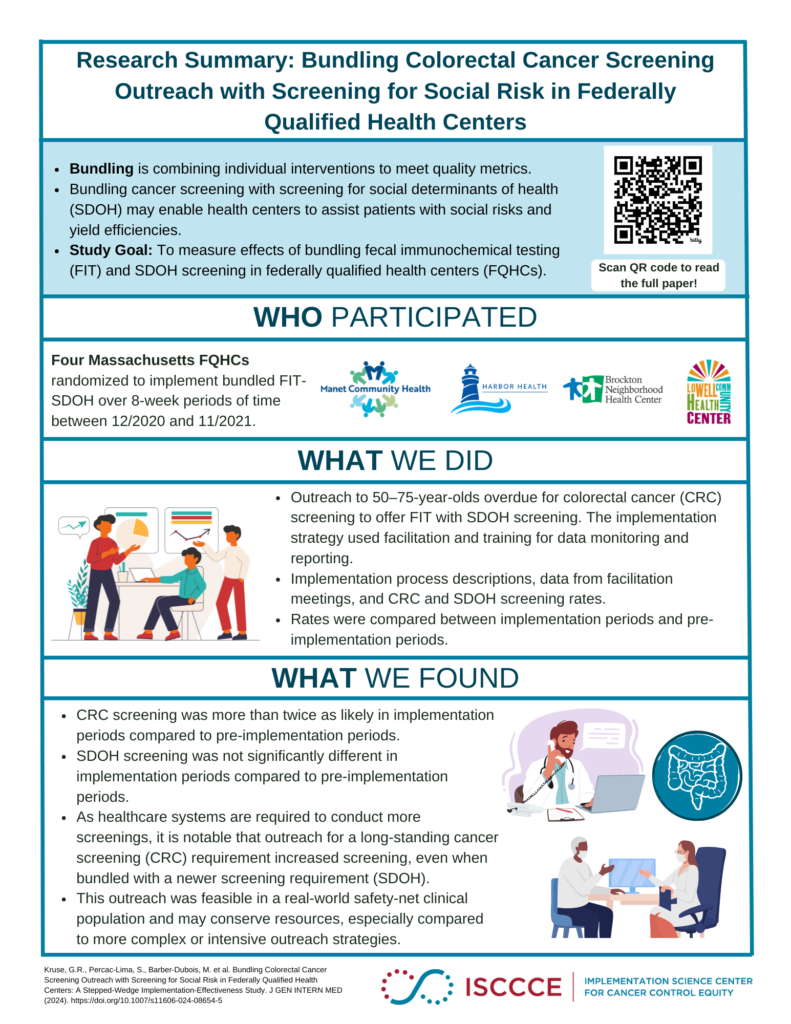
Bundling Colorectal Cancer Screening Outreach with Screening for Social Risk in Federally Qualified Health Centers
The study objective is to measure effects of bundling fecal immunochemical testing (FIT) and SDOH screening in federally qualified health centers (FQHCs).
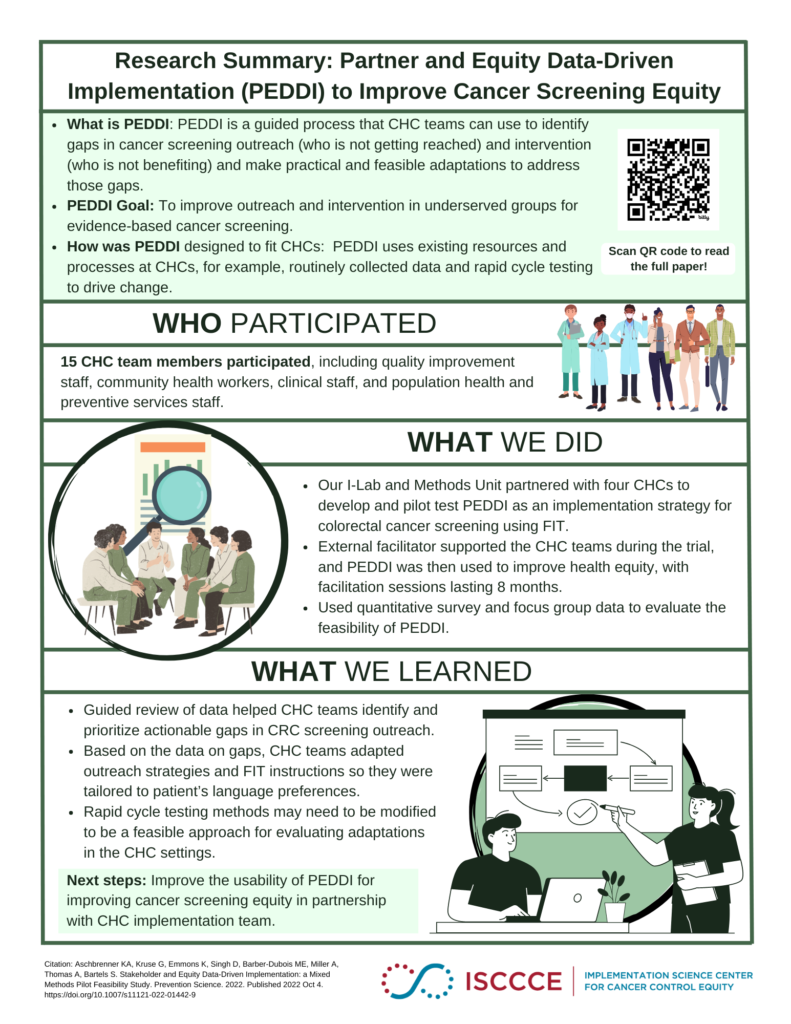
Partner and Equity Data-Driven Implementation (PEDDI) to Improve Cancer Screening Equity
The goal of PEDDI is to improve outreach and cancer screening for people in underserved communities. This study shared findings on how practical and accepted PEDDI was.
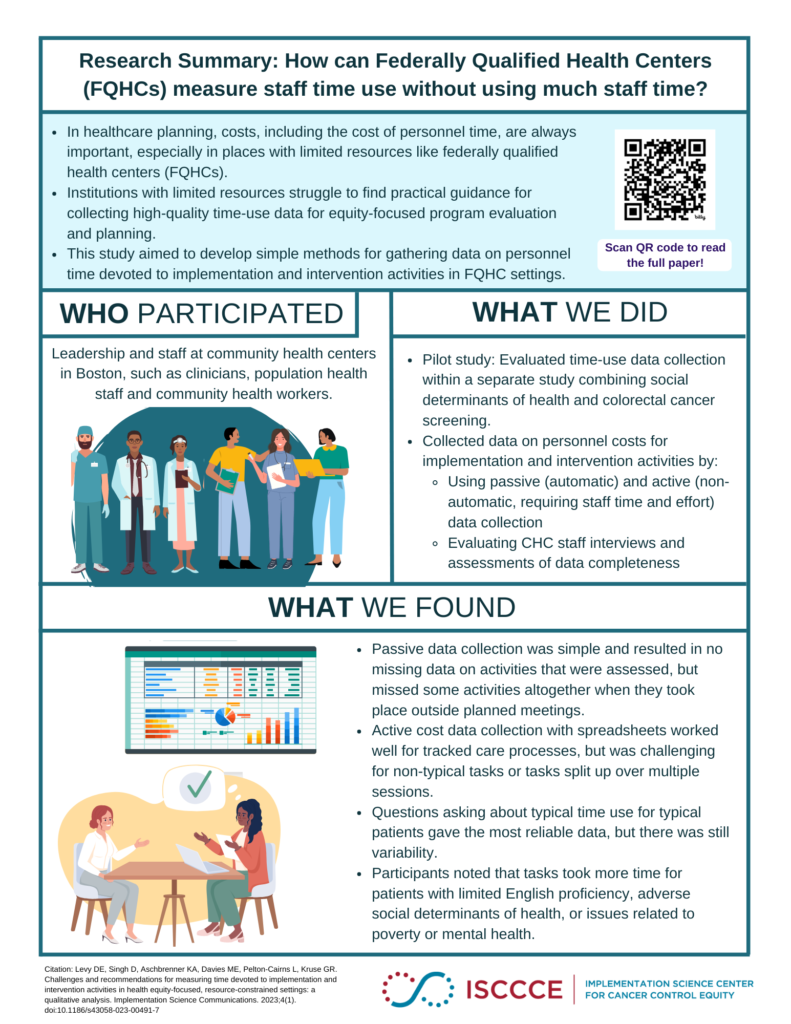
How can Federally Qualified Health Centers (FQHCs) measure staff time use without using much staff time?
This study aimed to develop simple methods for gathering data on personnel time devoted to implementation and intervention activities in FQHC settings.

Understanding Health Equity in Federally Qualified Health Centers (FQHCs) through Implementation Science Partnerships
This study looked at how health equity was put into action and addressed at Federally Qualified Health Centers (FQHCs).
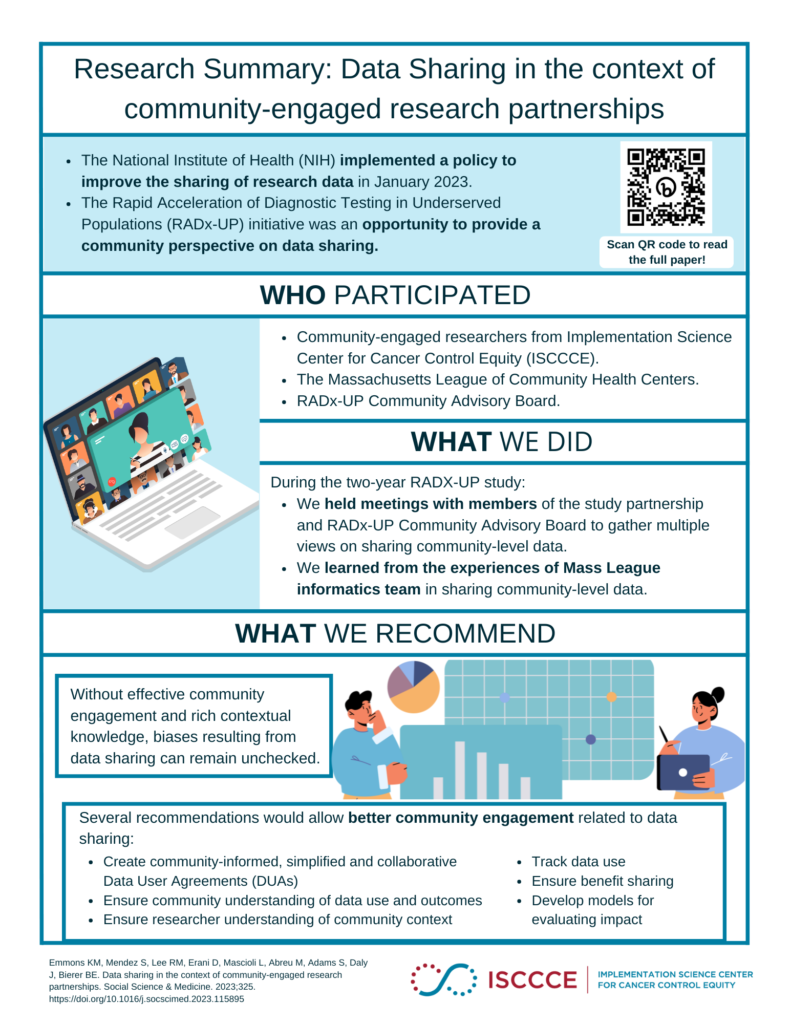
Data Sharing in the context of community-engaged research partnerships
This study looked at the topic of data sharing through the perspective of community-engaged research. This view comes from a long-term collaboration between researchers and community health organization.
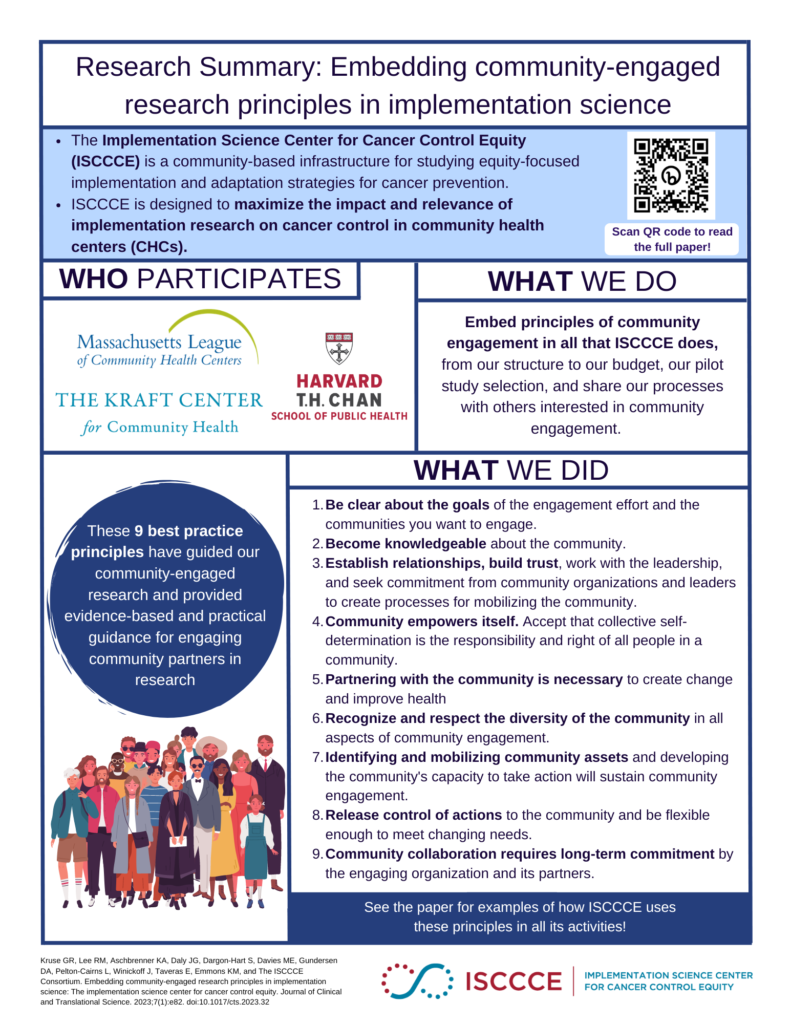
Embedding community-engaged research principles in implementation science
This paper talks about The Implementation Science Center for Cancer Control Equity (ISCCCE) and how they’re working closely with communities to improve cancer prevention and care by addressing implementation gaps.

Addressing COVID-19 Testing Inequities Among Underserved Populations in Massachusetts (MA)
The study explored the views of COVID-19 testing barriers in six MA communities that are predominately low-income.